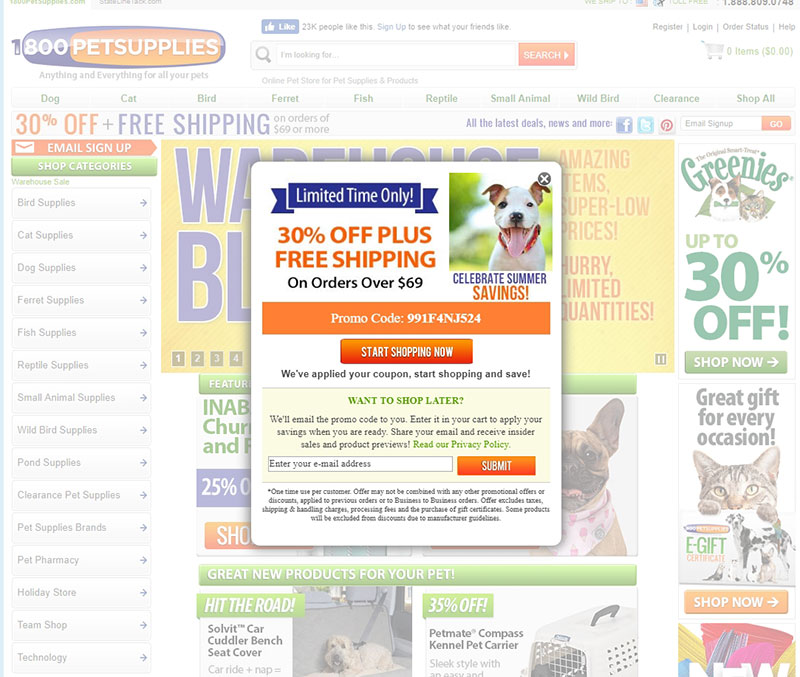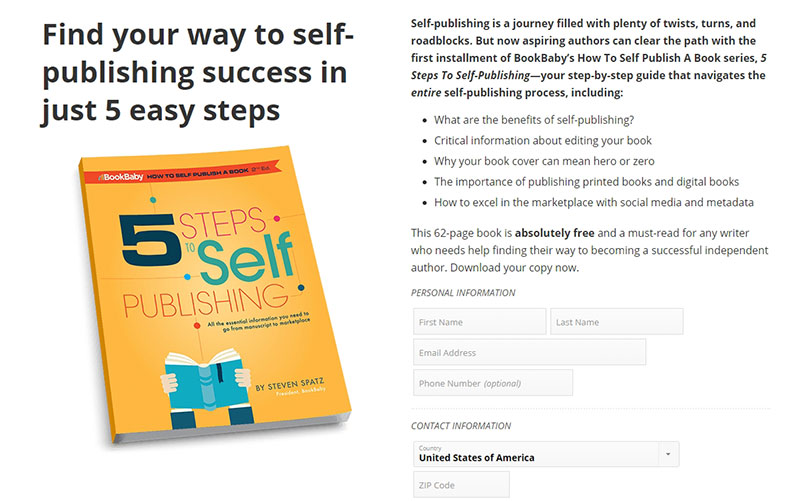
Use These High-converting Lead Magnets
Lead magnets are incentives offered to your website visitors in exchange for their names, email addresses and other contact information. Examples include eBooks, checklists, white papers, discount codes, quizzes and templates. Your visitors get something valuable, and you get their contact information so you can follow up via phone, email or snail mail.
Most commonly, lead magnets are used to entice visitors to subscribe to email lists. They bring prospects into your funnel so you can deploy lead nurturing campaigns that ultimately convince them to make purchases. Here’s how to create high-converting lead magnets that skyrocket subscribers.
What does a good lead magnet include?
The best lead magnet ideas have these things in common:
1. They offer value
Some lead magnets give advice or help people solve problems. Some offer instant discounts. Still others entertain. The common denominator, though, is that they offer value to your visitors.
Let’s say you sell suitcases. One lead magnet idea might be a family vacation checklist. You create a landing page or Pop Up to promote your checklist and collect subscribers’ names as well as email addresses, then automatically deliver the checklist as a PDF to subscribers’ inboxes. Subscribers can print your checklist and keep it handy while they plan and pack for vacation, which increases your brand visibility and makes it easy to follow up with email marketing that’s designed to sell suitcases.
2. They’re targeted
Lead magnets don’t need to be long, comprehensive masterpieces. Instead, they need to offer value to a specific target audience. That means they can be used to segment audiences into different lists, so you can personalize your email marketing and increase conversions. The more specific your lead magnet, the more targeted your marketing.
For example, let’s say you operate a pet store. Your lead magnet could be a guide to finding the perfect pet. However, that’s not very specific and chances are high that your customers already know which types of pets they prefer. A better, more targeted approach would be to create a guide to caring for a new puppy. Sure, it won’t interest cat owners or aquarium buffs (you can create different lead magnets for them), but people who just purchased or are considering a puppy are very likely to download your guide.
3. They demonstrate your capabilities and benefits
Good lead magnets don’t just offer value for subscribers, they show how you’re uniquely positioned to solve their problems or help them achieve their goals.
Let’s say you sell outdoor grilling supplies. You might create a guide to grilling steak. Your lead magnet will offer valuable tips, but you can also pepper it with mentions of how your products can help customers grill the perfect steak.
4. They’re just the beginning
Remember that lead magnets are a means to an end. Though they can certainly work to boost sales, the primary goal is to collect targeted subscribers’ email addresses. That means you should develop an accompanying lead nurturing campaign that’s deployed via an autoresponder. This type of email marketing automation works to convert subscribers into customers.
For example, let’s say you operate a restaurant. Your lead magnet might be simple: a coupon good for 10% off the next meal. Getting that initial business is great, but the real value will be realized through sending targeted emails that promote your weekly specials and motivate multiple visits to your eatery.
How to generate content for a good lead magnet?
Now you know the value of lead magnets, but how can you generate content for a good lead magnet? Here are four ideas.
1. Surveys
Create surveys and send them to your customers. Ask questions about their problems, lifestyles, hobbies and things they wish they knew. You can use that information to craft lead magnets people will want to download.
For example, let’s say you operate a B2B accounting service. Your survey might ask business owners about their biggest bookkeeping challenges. You might discover they struggle to identify which expenses are tax deductible; this could inspire you to create a “tax-deductible checklist” lead magnet.
2. Blog content
If your website has a blog, study your analytics to see which posts are the most popular. Then, create lead magnets based on that content.
You can simply repackage your blog posts into a lead magnet, but a better idea is to take your top titles and expand on them so your lead magnets offer additional value. Then, visitors will share their email addresses to access it.
3. Customer support
Your existing customer base can inform lead magnet content. Study customer support emails to identify common problems, questions and themes. Read through related support forums and take note when customers ask questions on the phone and in your store.
They’re asking these questions because they want the answers. If you can package those answers into a guide, eBook or other resource, you have an excellent lead magnet idea that’s likely to convert visitors to subscribers (and, ultimately help convert subscribers to customers).
4. Competitor websites
Browse your competitors’ websites to see which lead magnets they use. If you notice a given lead magnet or theme used time and again, it probably works. You can model your lead magnet after that or, even better, improve on their idea so your lead magnet is more attractive.
Examples of effective lead magnets
These are some of the most popular and effective lead magnet examples you can use as inspiration for your own marketing.
Guides, eBooks and checklists
Typically delivered as PDF downloads, the above are informative guides that help your audience solve problems or achieve goals. In this example, Book Baby offers a free guide to self-publishing. The guide promises real value, it’s targeted to Book Baby’s audience, it will undoubtedly mention how Book Baby can help and it’s just the beginning of what will likely be a strong lead nurturing campaign.
Online and email courses
Courses can be excellent lead magnets. The first lesson is typically available right away, so courses have immediate value, but they also keep subscribers engaged as a new lesson is released every day or week.
In this example found on How To Play Guitar, the author offers 50 beginner guitar video lessons. Your course doesn’t need to have 50 lessons (you could do a four-part or six-part series), but this example illustrates how a targeted online or email course can be a powerful lead magnet.

Instant discounts
Instant coupon codes are excellent lead magnets. Even if coupons don’t persuade people to buy today, you can use automated email marketing to reach out to subscribers until they do. In this example, 1800 Pet Supplies offers an instant, yet time-limited, coupon code and gives customers the opportunity to subscribe if they want to use the coupon code later.

Other lead magnet ideas
Those are just a few lead magnet examples, but you’re not limited to those ideas. Here are a few more:
- Quizzes (give results after users submit their email addresses)
- Downloadable templates
- Calendars and planners
- Cheat sheets
- Infographics
- White papers
- Case studies
- Special reports
- Sneak peek or sample chapters
- Free trials
- Free quotes, estimates and consultations
- Recipes/cookbooks
- Contests
- Webinars
- Waiting lists (perfect for validating ideas)
- Audio books
- Free samples
- Demos
- Free shipping
- Online tools and resources
- Videos and podcast episodes
- Workbooks
- Community membership
- Swipe files
- Resource lists
- Print/snail mail catalogs
Lead magnets are powerful marketing tools employed by large and small businesses alike. Use these tips to determine what information your audience will share their email addresses for, then create a compelling lead magnet that converts visitors to subscribers and subscribers to customers.
If you want to learn more about marketing, check out the rest of our blog. If you’re ready to start making content, sign up for a free trial to get the tools you need to make great marketing campaigns!
© 2023, Vertical Response. All rights reserved.




